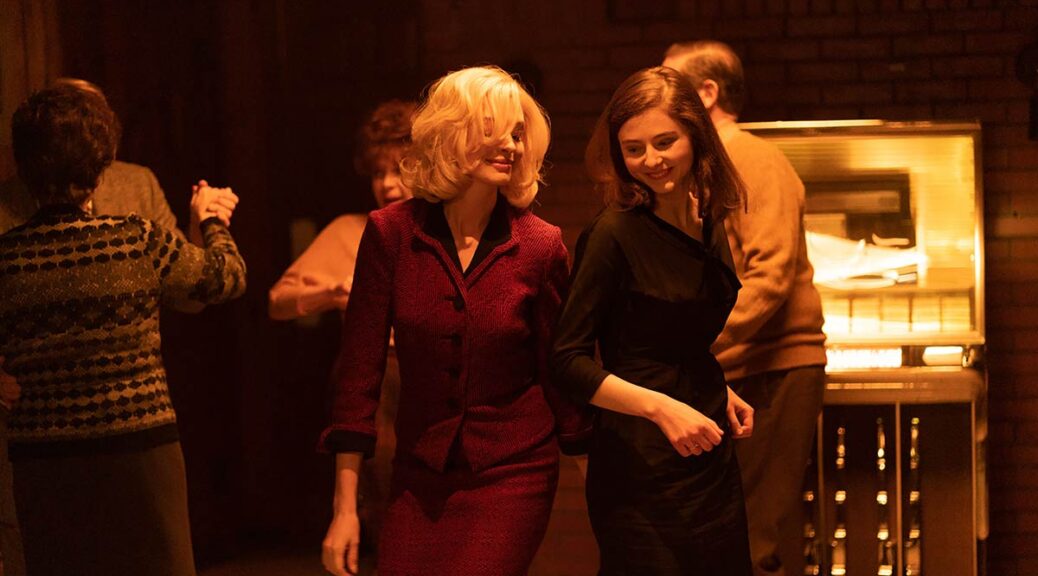Eileen
by George Wolf
You need an “easy on the eyes” vamp for your nourish thriller? Anne Hathaway’s on your short list, for sure.
Soft-spoken, sheltered waif with eyes that long for a new life? Get me Thomasin McKenzie!
The casting in Eileen may be no surprise, but there are big surprises in store. And the way the two leads slowly draw their characters toward a deadly intersection keeps William Oldroyd’s second feature engaging throughout.
McKenzie is the put-upon Eileen, who quietly spends her days fantasizing about sex and violence and stashing away all the money she makes doing secretarial work at a boys correction facility in early 1960s Massachusetts. Eileen is also the daughter of the town’s former police chief (Shea Whigham), currently a paranoid, drunk widower with a penchant for verbal abuse and gun waving.
Eileen’s world is rocked when the facility’s staff psychologist retires, and Rebecca (Anne Hathaway) shows up to replace her. Tall, Ivy League-schooled with a sarcastic wit and a smoldering sensuality, Rebecca stands out plenty in the little New England ‘burg.
They meet for a couple drinks at the local bar and hit the dance floor while Rebecca belittles the leering regulars. Eileen is transfixed.
So she jumps at the invitation to visit over the holiday break, where Rebecca (and screenwriter Luke Goebel, Causeway) have a big bomb to drop.
Adapted from Ottessa Mosfegh’s award-winning 2015 novel, the film is a slow boil that leans on mood and atmospherics to lull you, even as you feel the creep of dread.
Both Hathaway and McKenzie are perfection, consistently smoothing the bumps when Oldroyd (Lady Macbeth) seems a bit hesitant to fully embrace the story’s pulpy underbelly. He and Goebel also tweak the novel’s ending, leaving the resolution more open-ended and abstract.
Fans of the book may feel slighted, but Eileen lands on the big screen as its own slippery shape shifter, a simmering throwback with just enough thrills to satisfy.


Goebel doesn’t have solo screenwriting credits on this or Causeway. Instead both were co-written by his wife, who also happens to be the novelist in this case (whereas Causeway was adapted from the Elizabeth Sanders short story “Red, White, and Water”).